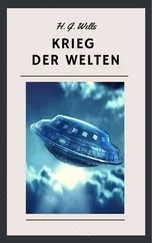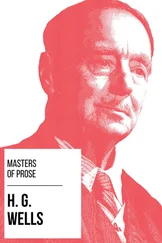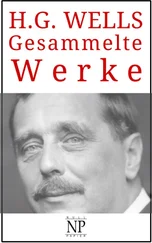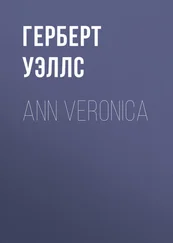said.
"That's exhilarating," said Ann Veronica.
"Not a bit of it," he said; "it's only a score in a game."
"It's a score you can buy all sorts of things with."
"Nothing that one wants."
He turned to the waiter, who held a wine-card. "Nothing can cheer
me," he said, "except champagne." He meditated. "This," he said,
and then: "No! Is this sweeter? Very well."
"Everything goes well with me," he said, folding his arms under
him and regarding Ann Veronica with the slightly projecting eyes
wide open. "And I'm not happy. I believe I'm in love."
He leaned back for his soup.
Presently he resumed: "I believe I must be in love."
"You can't be that," said Ann Veronica, wisely.
"How do you know?"
"Well, it isn't exactly a depressing state, is it?"
"YOU don't know."
"One has theories," said Ann Veronica, radiantly.
"Oh, theories! Being in love is a fact."
"It ought to make one happy."
"It's an unrest--a longing-- What's that?" The waiter had
intervened. "Parmesan--take it away!"
He glanced at Ann Veronica's face, and it seemed to him that she
really was exceptionally radiant. He wondered why she thought
love made people happy, and began to talk of the smilax and pinks
that adorned the table. He filled her glass with champagne.
"You MUST," he said, "because of my depression."
They were eating quails when they returned to the topic of love.
"What made you think" he said, abruptly, with the gleam of
avidity in his face, "that love makes people happy?"
"I know it must."
"But how?"
He was, she thought, a little too insistent. "Women know these
things by instinct," she answered.
"I wonder," he said, "if women do know things by instinct? I
have my doubts about feminine instinct. It's one of our
conventional superstitions. A woman is supposed to know when a
man is in love with her. Do you think she does?"
Ann Veronica picked among her salad with a judicial expression of
face. "I think she would," she decided.
"Ah!" said Ramage, impressively.
Ann Veronica looked up at him and found him regarding her with
eyes that were almost woebegone, and into which, indeed, he was
trying to throw much more expression than they could carry.
There was a little pause between them, full for Ann Veronica of
rapid elusive suspicions and intimations.
"Perhaps one talks nonsense about a woman's instinct," she said.
"It's a way of avoiding explanations. And girls and women,
perhaps, are different. I don't know. I don't suppose a girl
can tell if a man is in love with her or not in love with her."
Her mind went off to Capes. Her thoughts took words for
themselves. "She can't. I suppose it depends on her own state of
mind. If one wants a thing very much, perhaps one is inclined to
think one can't have it. I suppose if one were to love some one,
one would feel doubtful. And if one were to love some one very
much, it's just so that one would be blindest, just when one
wanted most to see."
She stopped abruptly, afraid that Ramage might be able to infer
Capes from the things she had said, and indeed his face was very
eager.
"Yes?" he said.
Ann Veronica blushed. "That's all," she said "I'm afraid I'm a
little confused about these things."
Ramage looked at her, and then fell into deep reflection as the
waiter came to paragraph their talk again.
"Have you ever been to the opera, Ann Veronica?" said Ramage.
"Once or twice."
"Shall we go now?"
"I think I would like to listen to music. What is there?"
"Tristan."
"I've never heard Tristan and Isolde."
"That settles it. We'll go. There's sure to be a place
somewhere."
"It's rather jolly of you," said Ann Veronica.
"It's jolly of you to come," said Ramage.
So presently they got into a hansom together, and Ann Veronica
sat back feeling very luxurious and pleasant, and looked at the
light and stir and misty glitter of the street traffic from under
slightly drooping eyelids, while Ramage sat closer to her than he
need have done, and glanced ever and again at her face, and made
to speak and said nothing. And when they got to Covent Garden
Ramage secured one of the little upper boxes, and they came into
it as the overture began.
Ann Veronica took off her jacket and sat down in the corner
chair, and leaned forward to look into the great hazy warm brown
cavity of the house, and Ramage placed his chair to sit beside
her and near her, facing the stage. The music took hold of her
slowly as her eyes wandered from the indistinct still ranks of
the audience to the little busy orchestra with its quivering
violins, its methodical movements of brown and silver
instruments, its brightly lit scores and shaded lights. She had
never been to the opera before except as one of a congested mass
of people in the cheaper seats, and with backs and heads and
women's hats for the frame of the spectacle; there was by
contrast a fine large sense of space and ease in her present
position. The curtain rose out of the concluding bars of the
overture and revealed Isolde on the prow of the barbaric ship.
The voice of the young seaman came floating down from the
masthead, and the story of the immortal lovers had begun. She
knew the story only imperfectly, and followed it now with a
passionate and deepening interest. The splendid voices sang on
from phase to phase of love's unfolding, the ship drove across
the sea to the beating rhythm of the rowers. The lovers broke
into passionate knowledge of themselves and each other, and then,
a jarring intervention, came King Mark amidst the shouts of the
sailormen, and stood beside them.
The curtain came festooning slowly down, the music ceased, the
lights in the auditorium glowed out, and Ann Veronica woke out of
her confused dream of involuntary and commanding love in a glory
of sound and colors to discover that Ramage was sitting close
beside her with one hand resting lightly on her waist. She made a
quick movement, and the hand fell away.
"By God! Ann Veronica," he said, sighing deeply. "This stirs
one."
She sat quite still looking at him.
"I wish you and I had drunk that love potion," he said.
She found no ready reply to that, and he went on: "This music is
the food of love. It makes me desire life beyond measure. Life!
Life and love! It makes me want to be always young, always
strong, always devoting my life--and dying splendidly."
"It is very beautiful," said Ann Veronica in a low tone.
They said no more for a moment, and each was now acutely aware of
the other. Ann Veronica was excited and puzzled, with a sense of
a strange and disconcerting new light breaking over her relations
with Ramage. She had never thought of him at all in that way
before. It did not shock her; it amazed her, interested her
beyond measure. But also this must not go on. She felt he was
going to say something more--something still more personal and
intimate. She was curious, and at the same time clearly resolved
she must not hear it. She felt she must get him talking upon some
impersonal theme at any cost. She snatched about in her mind.
"What is the exact force of a motif?" she asked at random.
"Before I heard much Wagnerian music I heard enthusiastic
descriptions of it from a mistress I didn't like at school. She
gave me an impression of a sort of patched quilt; little bits of
patterned stuff coming up again and again."
Читать дальше












